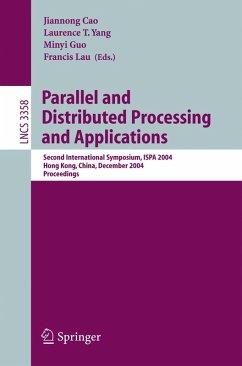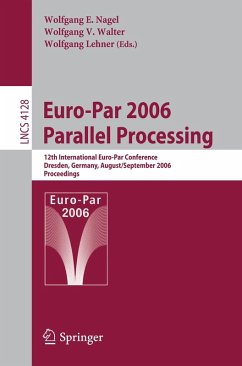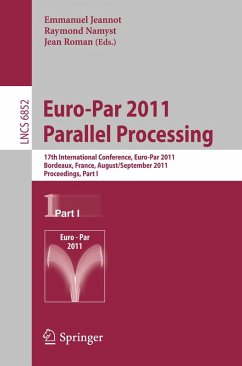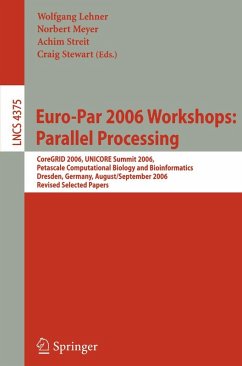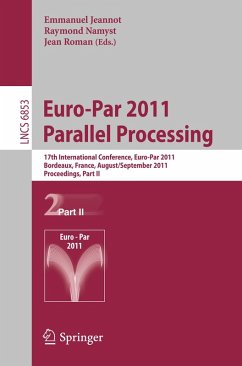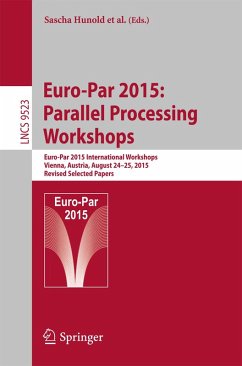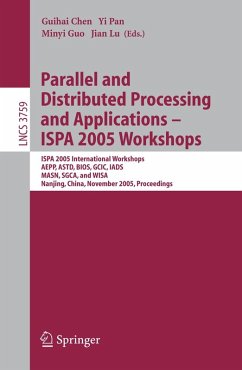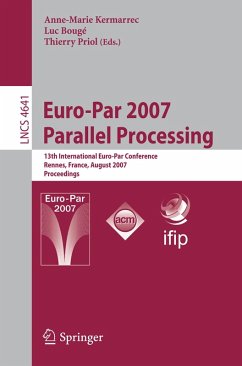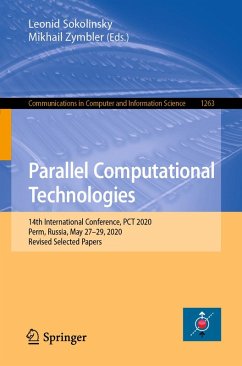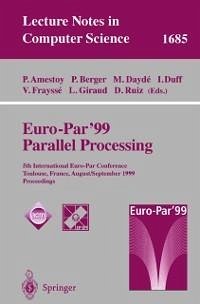
Euro-Par' 99 Parallel Processing (eBook, PDF)
5th International Euro-Par Conference Toulouse, France, August 31-September 3, 1999 Proceedings
Redaktion: Amestoy, Patrick; Ruiz, Daniel; Giraud, Luc; Fraysse, Valerie; Duff, Iain; Dayde, Michel; Berger, Philippe
Versandkostenfrei!
Sofort per Download lieferbar
40,95 €
inkl. MwSt.
Weitere Ausgaben:

PAYBACK Punkte
20 °P sammeln!
Euro-Parisaninternationalconferencededicatedtothepromotionandadvan- ment of all aspects of parallel computing. The major themes can be divided into the broad categories of hardware, software, algorithms and applications for p- allel computing. The objective of Euro-Par is to provide a forum within which to promote the development of parallel computing both as an industrial te- nique and an academic discipline, extending the frontier of both the state of the art and the state of the practice. This is particularly important at a time when parallel computing is undergoing strong and sustained dev...
Euro-Parisaninternationalconferencededicatedtothepromotionandadvan- ment of all aspects of parallel computing. The major themes can be divided into the broad categories of hardware, software, algorithms and applications for p- allel computing. The objective of Euro-Par is to provide a forum within which to promote the development of parallel computing both as an industrial te- nique and an academic discipline, extending the frontier of both the state of the art and the state of the practice. This is particularly important at a time when parallel computing is undergoing strong and sustained development and experiencing real industrial take-up. The main audience for and participants in Euro-Parareseenasresearchersinacademicdepartments,governmentlabora- ries and industrial organisations. Euro-Par's objective is to become the primary choice of such professionals for the presentation of new results in their specic areas. Euro-Par is also interested in applications which demonstrate the e -tiveness of the main Euro-Par themes. There is now a permanent Web site for the series http://brahms. fmi. uni-passau. de/cl/europar where the history of the conference is described. Euro-Par is now sponsored by the Association of Computer Machinery and the International Federation of Information Processing. Euro-Par'99 The format of Euro-Par'99follows that of the past four conferences and consists of a number of topics eachindividually monitored by a committee of four. There were originally 23 topics for this year's conference. The call for papers attracted 343 submissions of which 188 were accepted. Of the papers accepted, 4 were judged as distinguished, 111 as regular and 73 as short papers.
Dieser Download kann aus rechtlichen Gründen nur mit Rechnungsadresse in A, B, BG, CY, CZ, D, DK, EW, E, FIN, F, GR, HR, H, IRL, I, LT, L, LR, M, NL, PL, P, R, S, SLO, SK ausgeliefert werden.




